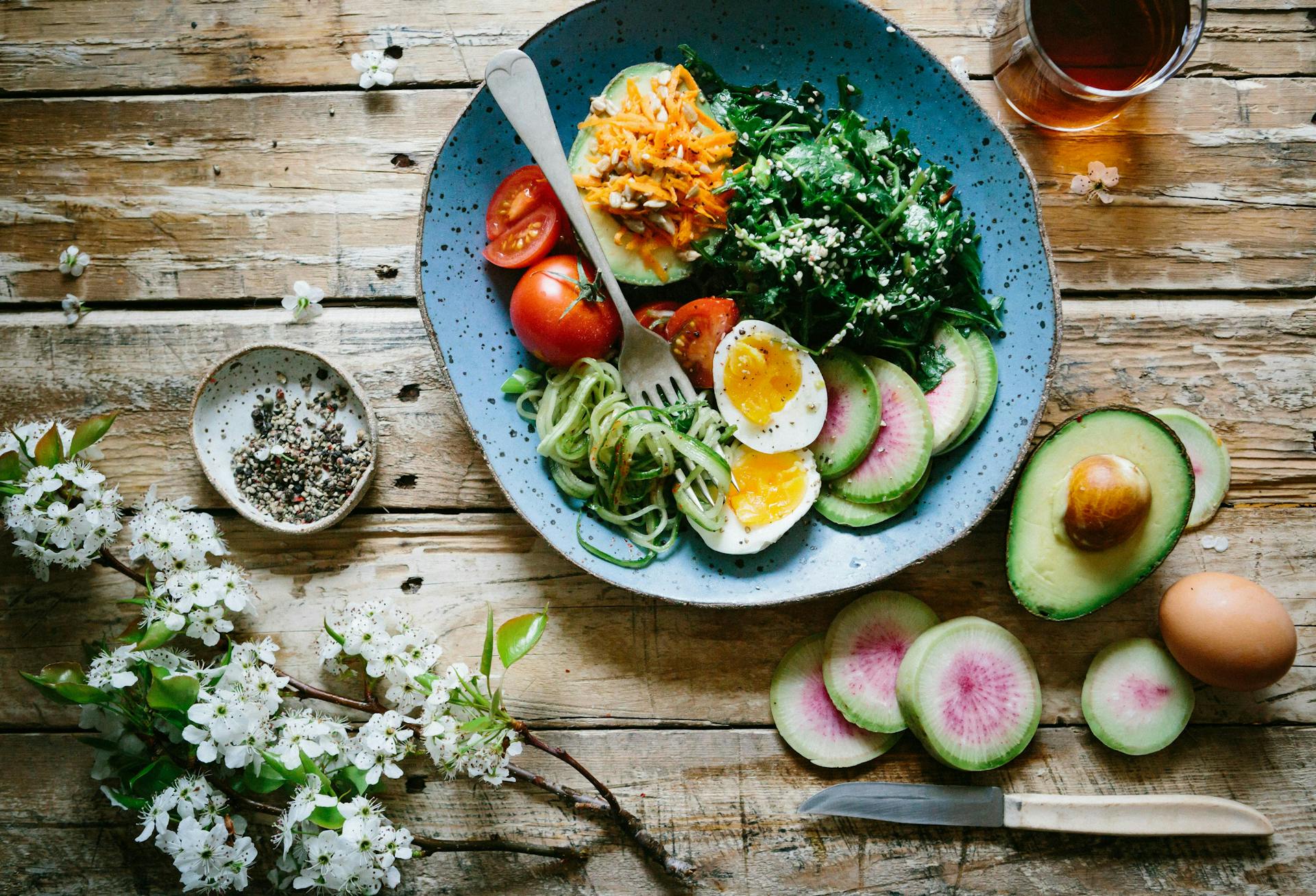BNF Healthy Eating Week

Every year, the British Nutrition Foundation invites us all to celebrate Healthy Eating Week and this year it falls on 13 - 17th June. At Rocketmakers we’re lucky to have a part-time nutritional therapist on the team so this year, we asked her for some top tips to help us all eat more healthily.
Here is what she has to say:
When I work with clients to help them use food, lifestyle and supplements there are a few tips that are universally applicable. These are small decisions that you can make every day to help your digestive system which is vital to your health and wellbeing. The BNF Healthy Eating campaign will focus on a different tip for each day of the week so I’ve used these as a foundation for my suggestions
#1 Eat more vegetables
A study by Tim Spector suggests we should be aiming for 30 different plant based foods each week. That feels like a lot, but when you consider the vegetables, fruits, seeds, nuts, beans, legumes, spices and herbs you eat, hopefully it’ll feel a bit more achievable. Five veggies a day is a great start but it’s really not enough if you want to build up your good bacteria.
10 tips for getting more plants in your diet: https://joinzoe.com/post/eat-more-plants
#2 Get the balance right
When I was a child, people thought that ‘meat and two veg’ (one of which was usually potato-based) was an acceptable, balanced plate. With the research we now have, we know that having a regular intake of vegetables, probiotic foods (like sauerkraut and kimchi), good fats (like olive oil and avocado), protein (beans, meat, fish, eggs), and wholegrains/starches.
This is the best summary that I’ve found: https://bastyrcenter.org/sites/default/files/bcnh_healthy_plate_infographic_v1.pdf
#3 Audit your protein intake
The amount of protein you need every day is a multiple of your body weight. The multiple depends on your health and fitness goals and your life stage. It is surprisingly common that people aren’t eating enough protein on a daily basis so it’s worth doing the maths to see how much you consume, and whether that fits with what you need.
Find out more about your protein goal here: https://examine.com/nutrition/protein-intake-calculator/
#4 Drink more water and herbal tea
Drinking 2L of water a day is pretty much recognised as an expectation for everyone. So it always surprises me when clients disclose how little they actually drink - and the proportion of their liquid intake that is caffeine and alcohol! It might seem like a simple suggestion but when your body is 55-65% water it is absolutely vital that you keep it hydrated - for digestion, energy, immunity and so much more.
#5 Consider how processed your diet is
In the last couple of years, there has been increased information about the detrimental impact ultra-processed foods can have on your body, your health, the planet and our climate. But what are ultra-processed foods? When I’m buying food that has been processed, I look for 5 ingredients and I always want to recognise every ingredient as actual food, not chemicals. The NOVA food classification divides the foods we buy into four groups:
- Unprocessed and minimally processed - Unprocessed foods include fruit, vegetables, nuts, seeds, grains, beans, pulses and natural animal products such as eggs, fish, milk and unprocessed meat. Minimally processed foods may have been dried, crushed, roasted, frozen, boiled or pasteurised, but contain no added ingredients.
- Processed culinary ingredients - Processed culinary ingredients, include oils, fats such as butter, vinegars, sugars and salt. These foods are not meant to be eaten alone, but usually with foods in group one.
- Processed - Processed foods are products that are usually made using a mix of group one and two ingredients. They include smoked and cured meats, cheeses, fresh bread, bacon, salted or sugared nuts, tinned fruit in syrup, beer and wine. The main purpose of the processing is to prolong the food’s life or enhance its taste
- Ultra-processed -Ultra-processed foods usually contain ingredients that you wouldn’t add when cooking homemade food. You may not recognise the names of these ingredients as many will be chemicals, colourings, sweeteners and preservatives. Examples include: industrialised bread, pre-packaged meals, breakfast cereals and sausages or reconstituted meat products.
Read more about the broader impacts of processed foods: https://www.soilassociation.org/causes-campaigns/ultra-processed-planet/



